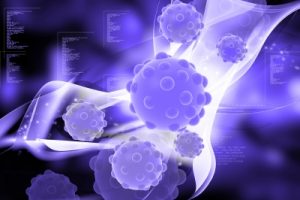A Bacterial Protein Linked To Anorexia, Overeating
 A specific bacterial protein that can influence appetite regulation might explain a biological basis for certain eating disorders like anorexia or binge eating, according to new research.
A specific bacterial protein that can influence appetite regulation might explain a biological basis for certain eating disorders like anorexia or binge eating, according to new research.
Published in the journal Translational Psychiatry, the study demonstrated how the relationship between the gut and brain might explain the dysregulation of food intake.
Certain bacteria, like Escherichia coli, seems to produce a specific protein that triggers the body to make antibodies against it. The problem with these antibodies, however, is that they react with the main satiety hormone (melanotropin). This can then change the effect of the hormone, either inhibiting satiety (anorexia) or preventing it (buliia or overeating).
Blood test could detect proteins
Using a mouse model, researchers modified gut bacteria, food intake and antibodies produced against melanotropin. In mice who were given strains of the antibody-producing bacteria, food intake varied, while mice receiving other strains of bacteria didn’t change their eating behavior.
Researchers suggest they might be able to correct the action of the protein by first developing a blood test to detect it.
“If we are successful in this, we will be able to establish specific and individualised treatments for eating disorders,” said study author Pierre Déchelotte.
Source: INSERM
Image courtesy of renjith krishnan/FreeDigitalPhotos.net
 Eating Disorder Self Test. Take the EAT-26 self test to see if you might have eating disorder symptoms that might require professional evaluation. All answers are confidential.
Eating Disorder Self Test. Take the EAT-26 self test to see if you might have eating disorder symptoms that might require professional evaluation. All answers are confidential.